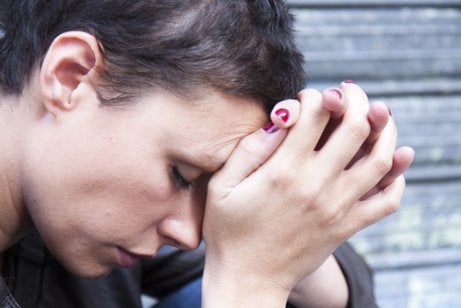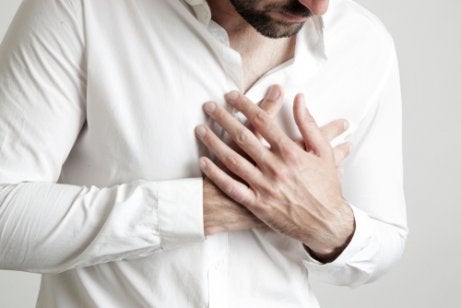Cardiophobia - The Fear of Having a Heart Attack


Written and verified by the psychologist Andrés Navarro Romance
The fear of having a heart attack and dying is called cardiophobia. Most people have experienced the anxiety that comes with feeling like their heart is beating too fast. However, that anxiety and fear become a problem when they start to interfere with your normal, everyday life.
The DSM-5 categorizes cardiophobia as an anxiety disorder. Patients with cardiophobia tend to complain about heart palpitations and chest pain that may not be based on reality. These symptoms sometimes become chronic. An anxiety attack in this context can be extremely unpleasant for the individual.
A person with cardiophobia usually perceives a physiological (natural) elevation in their heart rate (due to arousal, stress, or physical exertion) as abnormal.
Also common are ruminating thoughts about having some kind of cardiopathy. Consequently, they make frequent visits to medical specialists to try to avoid what they feel is an impending heart attack and potential death. Individuals with cardiophobia tend to request a barrage of medical tests that usually come back negative.
“The fears we don’t face become our limits.”
-Robin Sharma-
As with other phobias, the fear of having a heart attack stems from anxiety. It’s usually irrational and unconnected to reality and facts. It also causes significant psychological problems that can be fairly debilitating for the affected individual.
The good news is that, as with other phobias and anxieties, therapy can help people overcome cardiophobia. In fact, it has a fairly high success rate. According to available scientific research, cognitive behavioral therapy is an effective approach for this and other conditions, such as agoraphobia or social phobia.

Cardiophobia symptoms
An individual with cardiophobia often has some of the following symptoms. Some are psychological and some are cognitive in nature.
- Heightened levels of anxiety.
- Avoidance of physical activity.
- A pattern of breathing problems – difficulty breathing or rapid shallow breathing (tachypnea)
- Tachycardia or heart palpitations.
- Dizziness and/or vomiting.
- Excessive sweating.
- Dry mouth.
- Concentration problems.
- Incoherent speech.
- Tremors.
- Irritability.
- Feeling out of control.
- Headaches.
- Avoidance behaviors.
Possible causes of cardiophobia
This is a specific or “isolated” phobia, which means that it might stem from some kind of prior trauma. Childhood trauma or trauma involving physical harm are more often culprits. In general, the key triggers of cardiophobia aren’t of a social nature.
Psychologists tend to agree that genetics play a role in at least some specific phobias. The fight or flight response to the object of fear could be more common in people who are genetically predisposed to it.
It’s important to note that individuals with past heart issues are more likely to develop cardiophobia. In that case, sometimes, there’s a real correlation between the phobia trigger and a genuine abnormal cardiac situation.
Upbringing often has a lot to do with the development of phobias. In the case of cardiophobia, one or both parents might have given the child the idea that irregularities in their heartbeat could be a sign of fatal abnormalities.

Treatment of cardiophobia
Here are some of the most effective treatments for people who are afraid of having a heart attack:
- Cognitive-behavioral therapy (CBT).
- Learning relaxation strategies.
- Cognitive therapy.
- Psychotherapy.
- Group therapy.
- Hypnotherapy.
- Meditation.
- Psychopharmacology.
In conclusion, while this condition can be extremely uncomfortable for those who suffer from it, they can take some comfort in the fact that it’s very treatable. There are also many effective options available.
That being said, treating an irrational fear or phobia usually is a hard and intense process. The good news is that studies show that the effects of therapy tend to be positive and permanent.
All cited sources were thoroughly reviewed by our team to ensure their quality, reliability, currency, and validity. The bibliography of this article was considered reliable and of academic or scientific accuracy.
- Eifert, GH. Cardiophobia: a paradigmatic behavioral model of heart-focused anxiety and non-anginal chest pain. Behav Res and Ther. 1992; 30 (4): 329-45.
This text is provided for informational purposes only and does not replace consultation with a professional. If in doubt, consult your specialist.








